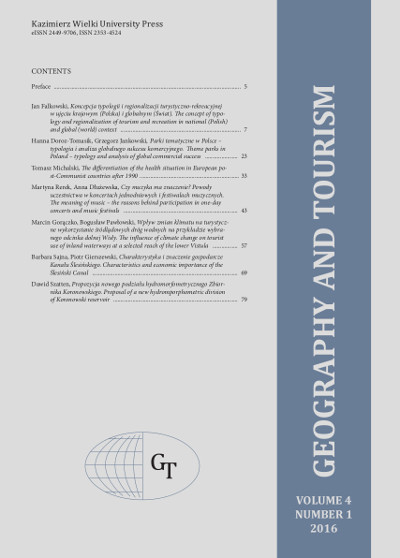The differentiation of the health situation in European post-Communist countries after 1990
Keywords:
health situation, post-Communist countries, Central Europe, Eastern EuropeAbstract
The objective of the study is to evaluate changes in the health situation in European post-Communist countries in the period of 1990–2012. The spatial range covers the European part of the former Warsaw Pact (within the limits from 1956) plus the former Yugoslavia, but without the former German Democratic Republic and Russia. Five variables were analysed: crude death rate per 1,000 population; estimated infant deaths per 1,000 live births; difference between life expectancy at birth between males and females (in years); incidence of tuberculosis per 100,000 population; incidence of syphilis and gonorrhoea infections per 100,000 population. Four groups of countries differing from one another in the health situation in the analysed period. The first two groups (with a relatively good or average health situation) include the former Communist countries that in the past did not belong to the former Soviet Union. All post-Soviet countries plus Bulgaria and Romania qualified as countries with a poor or very poor health situation. Belonging or not to the former USSR in the past and fast and efficient system reforms were considered to be the main factors differentiating the situation. Of secondary importance are regional factors, such as: substantial demographic age in some societies, the status of women as a result of historical circumstances, civil wars and a different diet.

